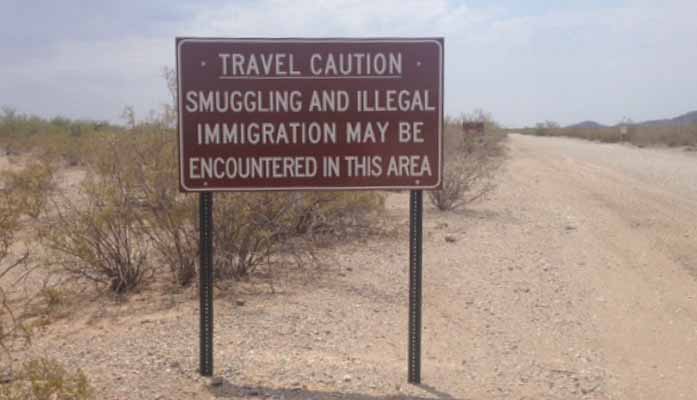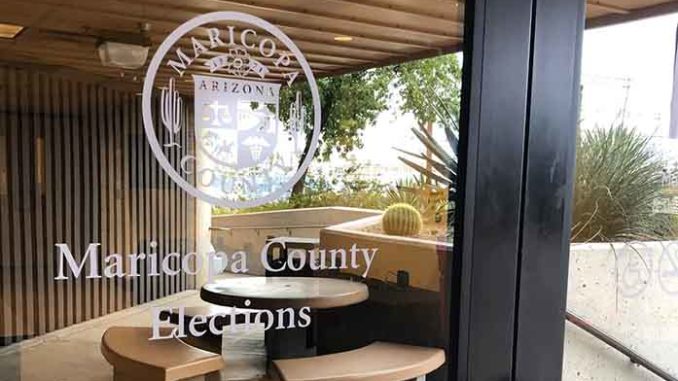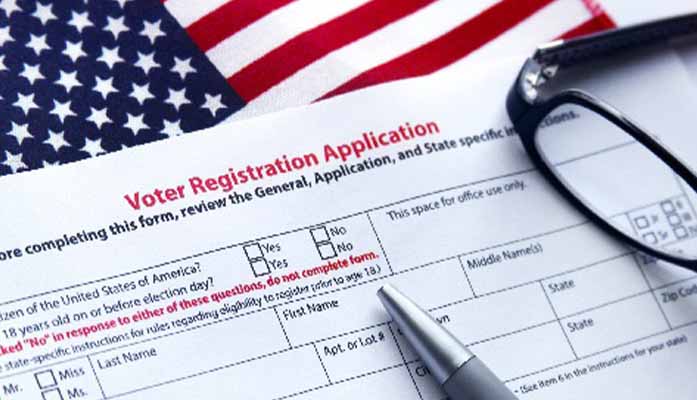
The Leftist Forces Financing Opposition To Trump’s Illegal Immigration Crackdown
By Staff Reporter |
“CHINGA LA MIGRA!”
Major cities nationwide resounded with this chant in the weeks following President Donald Trump’s inauguration. Pro-illegal immigration activists took over the streets with protests bordering on riots and engaged in coordination efforts to thwart deportations.
Younger grassroots activists, like those with the local Party For Socialism and Liberation or the MECHA chapters, bolstered their numbers with members of the most well-funded leftist activist operations in the state.
These activist operations are nonprofits financed, in large part, by the wealthiest leftist donors in the nation—especially those dealing in dark money by the millions. But it doesn’t stop there. They’re also financed by reputable U.S. corporations and their leaders—and even federal grants. These nonprofits have similar goals: opening the border, abolishing immigration enforcement, and granting citizenship to illegal immigrants.
These leftist activist nonprofits are consistent in their messaging, outlined succinctly in collaborative efforts such as the United Nations Human Rights Council Immigration Working Group of 2020 report. That report advocated for the abolition of Immigration and Customs Enforcement (ICE) and the establishment of “Welcoming Centers” to process any who wish to come across the border in Yuma, Nogales, and in other states along the southern border.
The following are the powerhouse groups leading coordinated efforts in Arizona to undermine the Trump administration’s immigration enforcement.
Aliento Education Fund (Aliento) — Phoenix. Reported revenue for 2023: over $1.7 million.
Aliento’s founder and current leader is Reyna Montoya, a DACA recipient. Montoya’s partner and the nonprofit’s vice president of education and external affairs, José Patiño, is a 2024-25 Obama Foundation USA Leader.
Aliento provides illegal aliens with a defense and preparation plan to counter immigration enforcement efforts as well as resources on evading ICE.
Should the Supreme Court take on and overrule the active Deferred Action for Childhood Arrivals Program (DACA) case, recipients like their founder, Montoya, would be at risk for deportation. The Fifth Circuit Court of Appeals ruled DACA to be unlawful for new applicants but allowed renewals to continue.
The pressure of these pending changes to immigration law spurred Aliento to mobilize its forces.
Earlier this month, the Aliento chapter at Arizona State University led a protest against the advocacy of another campus group, College Republicans United, to aid deportation efforts.
In a subsequent interview with Arizona PBS, Montoya defended illegal immigration as permissible so long as the illegal immigrants don’t get a criminal record while in the country. Montoya also claimed the media and the Trump administration were exaggerating the negative consequences of illegal immigration.
“I think that people are really afraid that people who have been paying taxes, folks who haven’t really gotten in any trouble with the law, they are now targeted to be deported,” said Montoya.
In response to those supportive of deportations, Montoya declared illegal aliens shouldn’t be held responsible for committing the crime of illegal immigration.
“What would you do if you were in our shoes?” said Montoya. “That you only made one mistake in your life that pushed you from different circumstances, what would you have done?”
Among Aliento’s top donors over the past decade are the Tides Foundation ($675k), Pharos Foundation ($450k), Arizona Community Foundation ($355k), Satterberg Foundation ($350k), Bob and Renee Parsons Foundation ($300k), and Rockefeller Philanthropy Advisors ($222k).
Last year, Aliento also received a $75,000 grant from Blue Cross Blue Shield to improve the mental health of illegal immigrants.
In 2022, Aliento received $250,000 from the GoDaddy founder’s charitable organization, the Bob & Renee Parsons Foundation.
The Arizona Center for Empowerment (ACE) — Phoenix. Reported revenue for 2023: nearly $7 million.
ACE is a Phoenix-based illegal alien advocacy nonprofit and a sister organization to Living United for Change in Arizona (LUCHA). ACE has regularly reimbursed LUCHA a little over a million in expenses for the past several years. ACE emerged as a response to SB1070 over a decade ago.
ACE’s founders are Alejandra Gomez and Abril Gallardo Cervera.
Gomez, the executive director, formerly served as deputy organizing director of United We Dream, an illegal immigration advocacy organization, and co-executive director of LUCHA.
Cervera is the chief of staff for LUCHA, which she also founded, and sits on the board of United We Dream Action. Cervera played a significant role in unseating former Maricopa County Sheriff Joe Arpaio as well as passing the Health Working Families Initiative to raise Arizona’s minimum wage.
Other key players in ACE’s short history include Democratic lawmaker Raquel Terán, who sat on ACE’s board and formerly served as its director. Now, Terán is the director of the newly-formed Proyecto Progreso — another entity resisting immigration enforcement.
In response to the Trump administration’s deportation efforts, ACE has issued advisories to illegal aliens on avoiding immigration enforcement detainment: instructing them to remain silent, obtain legal counsel, and refuse law enforcement entry into the home without a warrant. ACE is also providing free assistance to illegal aliens, such as the completion of DACA renewal paperwork.
ACE and LUCHA senior policy advisor, Lena Avalos, led recent efforts to oppose a new Republican-led bill in the Arizona legislature (SB1111) offering a $2,500 bounty for each illegal immigrant via an Arizona Deportations Fund.
“This bill is nothing more than Donald Trump’s 2025 agenda, and you are wasting taxpayer resources on hateful, racist legislation,” said Avalos during the Senate Government hearing on SB1111.
Among ACE’s top donors over the past decade were the Center for Popular Democracy ($1.7 million), the Voter Registration Project (for voter registration, over $3.5 million), and the Telescope Fund ($900,000).
Chicanos Por La Causa Action Fund, also known as “Si Se Vota” (CPLCAF) is the advocacy arm of the similarly named nonprofit, Chicanos Por La Causa (CPLC). Reported revenue for 2023: $4.4 million.
CPLCAF is resisting the Trump administration by tapping top elected officials and grabbing the ears of the state’s movers and shakers.
The week of Trump’s inauguration last month, CPLCAF’s executive director, Joseph Garcia, met with leaders at Arizona State University’s Hispanic Research Center to advocate against the Trump administration’s plans for mass deportation.
CPLCAF receives its funding from CPLC: over $10.4 million directly from CPLC the last two years. CPLC had a reported $200 million in revenue in 2023.
A significant portion of CPLC’s millions has come from federal government grants: the nonprofit was awarded nearly $72 million out of the approximately $500 million in obligations (about $297 million of these obligations incurred from 2020 onward, nearly 60 percent of total obligations incurred since the earliest available dataset provided in 2008). The majority of these grants came under the Biden administration:
-
- In 2020, CPLC received a $101 million grant and a $68 million grant to carry out migrant head start programming, which doesn’t require proof of citizenship. $66 million and $53 million were outlayed, respectively; the performance period for the former doesn’t end until this August, and the latter grant ended last August.
- In 2021, CPLC received a $4 million grant, again for head start programming. The total grant was awarded by the performance period’s end last year.
- In 2022, CPLC received an $18 million grant to provide residential shelter and/or transitional foster care services for unaccompanied illegal immigrant children. Nearly $13 million has been outlayed; the performance period ends in June.
- In 2023, CPLC received a $16 million grant to conduct home study and post-release services for unaccompanied illegal immigrant children. About $2 million of that grant has been outlayed; the performance period ends in September 2026.
- In 2023, CPLC received a $12 million grant, again for head start programming. About $6 million of that grant has been outlayed; the performance period ends in December 2028.
- In 2024, CPLC received a $21 million grant, again for migrant head start programming. About $7 million of that grant has been outlayed; the performance period ends in August 2029.
The Florence Immigrant and Refugee Rights Project (Florence Project) — Tucson. Reported revenue for 2023: $17.8 million.
The Florence Project provides free legal and social services to detained illegal immigrants of all ages in Arizona. The founders were immigration attorneys Christopher Brelje and Charlene D’Cruz. It is the largest organization of its kind in the state. The nonprofit is engaged in two of 22 lawsuits filed so far against the Trump administration’s immigration policies.
The Trump administration’s Interior Department recently gave the Florence Project a stop work order on the Unaccompanied Children’s Program. The program issues government funding to non-governmental organizations to provide legal services to illegal alien minors. Days later following outcry and pushback, the administration rescinded that order.
Last month, the nonprofit sued the Trump administration over a day-one executive order, “Protecting the American People Against Invasion,” which dropped the court hearing requiring to expedite deportations, barred federal funding for sanctuary jurisdictions, limited parole authority to a case-by-case basis, limited Temporary Protected Status awards, paused pending the review and audit of all funds to non-governmental organizations involved with illegal aliens, prohibited public benefits to illegal aliens, and hired more immigration enforcement.
Earlier this month, the nonprofit sued the Trump administration over the proclamation shutting down asylum at the border.
In 2022, the Florence Project received $10 million from MacKenzie Scott — ex-wife to Amazon founder, Jeff Bezos. Scott’s donation was the single-largest gift from a donor in the nonprofit’s 35-year history, enabling the organization to expand in an unprecedented way by providing a “representation-for-all legal services model.”
A close second in funding is the Lakeshore Foundation, which gave the nonprofit about $7.6 million within the last decade.
Another top donor is the Arizona Foundation for Legal Services and Education, which gave about $600,000 over the past decade. This nonprofit was founded for the purpose of serving Arizonans.
Among other top donors over the past decade were Together Rising ($487k), the Norman E. Alexander Family Foundation ($308k), and the Immigrant Justice Corps ($309k).
The Florence Project also received over $500,000 in independent contract payments from the Acacia Center for Justice in 2022 for legal services.
PODER in Action (Poder) and PODER Arizona (AZ Poder) — Phoenix. Reported revenues for 2023: $2.1 million and $1.1 million, respectively.
Poder was founded in 2013 as “Center for Neighborhood Leadership” by Ken Chapman and Joseph Larios. It was run by individuals from illegal immigrant families.
Chapman has spawned a number of activist efforts in his name. Alongside LUCHA’s Cervera, Chapman played a significant role in unseating former Maricopa County Sheriff Joe Arpaio. Prior to Poder, Chapman was the executive director of the Maricopa County Democratic Party. Last year, Chapman sued the city of Phoenix for not producing records of elected officials’ communications with the Phoenix Police Department union.
Poder is the 501(c)(3) sister organization to its 501(c)(4), AZ Poder. Per the latest tax returns, the two organizations share identical leadership: executive director Viridiana (Viri) Hernandez and board members Nichole Cassidy (Chispa Arizona’s director of development; formerly: senior director of development for Women’s March, deputy director for Equality Arizona, director of development for Mijente, director of philanthropy for ACLU), Maher Osman (board member of CAIR Arizona, development coordinator for Instituto), Stephanie Cordel, and Zarinah Tavares.
Last November following Trump’s election, Hernandez, who came into the U.S. illegally, pushed the Phoenix City Council to refuse to assist deportations carried out by the Trump administration. Hernandez said the council needed to deprioritize immigration calls the way it has deprioritized abortion calls.
Since President Trump took office, AZ Poder organized protests at the Capitol against immigration enforcement efforts. They have also held workshops coaching illegal immigrants on ways to avoid immigration enforcement authorities.
Their top donors include the Alliance for Youth Organizing ($780k), Borealis Philanthropy ($700k), Marguerite Casey Foundation ($780k), and the Satterberg Foundation ($470k).
Puente Human Rights Movement, or Puente Arizona (Puente) – Phoenix. Reported revenue for 2023: nearly $900,000
Jovana Renteria (currently a director of the Maricopa County Bar Association’s division board) and Carlos Garcia (formerly the vice mayor of the city of Phoenix and co-founder of One Arizona) founded the nonprofit in 2007. Both left the organization in 2021.
Puente is helping illegal aliens evade immigration enforcement and other law enforcement officials assisting in deportation efforts.
Days into Trump taking office, Puente launched a hotline to warn illegal aliens of immigrant agent whereabouts and activity. The nonprofit sends out messages to illegal aliens so they may evade capture. Puente also arranged a network of scouts, “Migra Watch,” and the organization announced its plan to hold training sessions for those who sign up.
The nonprofit also scrubbed their website in preparation for their efforts to resist immigration enforcement. Their homepage currently reads, “We Are Cooking Something New.”
Puente’s executive director, Natally Cruz (Ireta), came to the U.S. illegally. In February, Cruz told NPR that she and the rest of Puente’s team are hands-on with the immigration authority hotline. Cruz has been leading workshops advising illegal immigrants on avoiding immigration authorities and taking advantage of constitutional rights.
“Instead of texting your comadre, or spreading the word, or putting a picture on social media, text it to us and we’ll make sure we’ll go out there and verify that information,” said Cruz.
Among Puente’s top donors over the past decade were Neo Philanthropy (over $1 million), the Arizona Community Foundation ($400k), Borealis Philanthropy ($300,000), and the Vanguard Charitable Endowment Program ($300k).
Puente is the local hub of the national social justice organization also based in Phoenix: Mijente. Puente acts as a fiscal sponsor for the Mijene Support Committee, a digital and grassroots hub founded in 2015. Mijente has given at least $265,000 to Puente in reported pass-through grants in recent years.
Mijente is currently organizing groups for “deportation defense” to “organize against ICE raids” through its Community Defense Brigada, part of its Equipo Hormiguero program.
At the helm of Mijente are Marisa Franco, its co-founder, executive director, and president; Rafael Navar, its co-founder and treasurer; and Priscilla Gonzalez, secretary and campaign director.
Navar also founded Division Del Norte, a California activist group, and formerly served as the California state director for Bernie Sanders’ 2020 presidential campaign, and several directorships for the major labor unions AFL-CIO and SEIU.
Last December, Mijente and 61 other organizations launched an unsuccessful attempt to persuade the Biden administration to scale back ICE’s Intensive Supervision Appearance Program (ISAP), the immigration agency’s supervision program, to hinder the Trump administration’s deportation efforts.
One of Mijente’s top donors is the Open Society Foundations (OSF or “Open Society Institute”), the nonprofit launched by leftist billionaire and dark money financier George Soros. OSF gave Mijente over $2.5 million from 2019 to 2022, along with $25,000 to Puente.
The Protests Will Go On
Mass protests against the Trump administration’s immigration policies and deportation efforts may not die down but could take different shapes in the coming months. Activists shifted their focus recently to protesting the Arizona legislature’s bills complementing federal immigration policies like SB1164: the Arizona Immigration, Cooperation, and Enforcement Act (Arizona ICE Act). This bill proposes restrictions on local governmental resistance to federal immigration authorities by adopting or passing anything prohibiting or restricting cooperation. It also requires law enforcement agencies to comply with federal immigrant detainers.
The Senate’s committee hearing on SB1164 drew a similar crowd of protesters as those who appeared in preceding weeks protesting the Trump administration. LUCHA organized that protest; an organizer, Gina Mendez, said LUCHA plans to protest every Monday at the state capitol against immigration enforcement efforts.
“NO PEACE, NO JUSTICE,” chanted the activists at one of the latest protests. “THIS IS WHAT DEMOCRACY LOOKS LIKE.”
AZ Free News is your #1 source for Arizona news and politics. You can send us news tips using this link.




